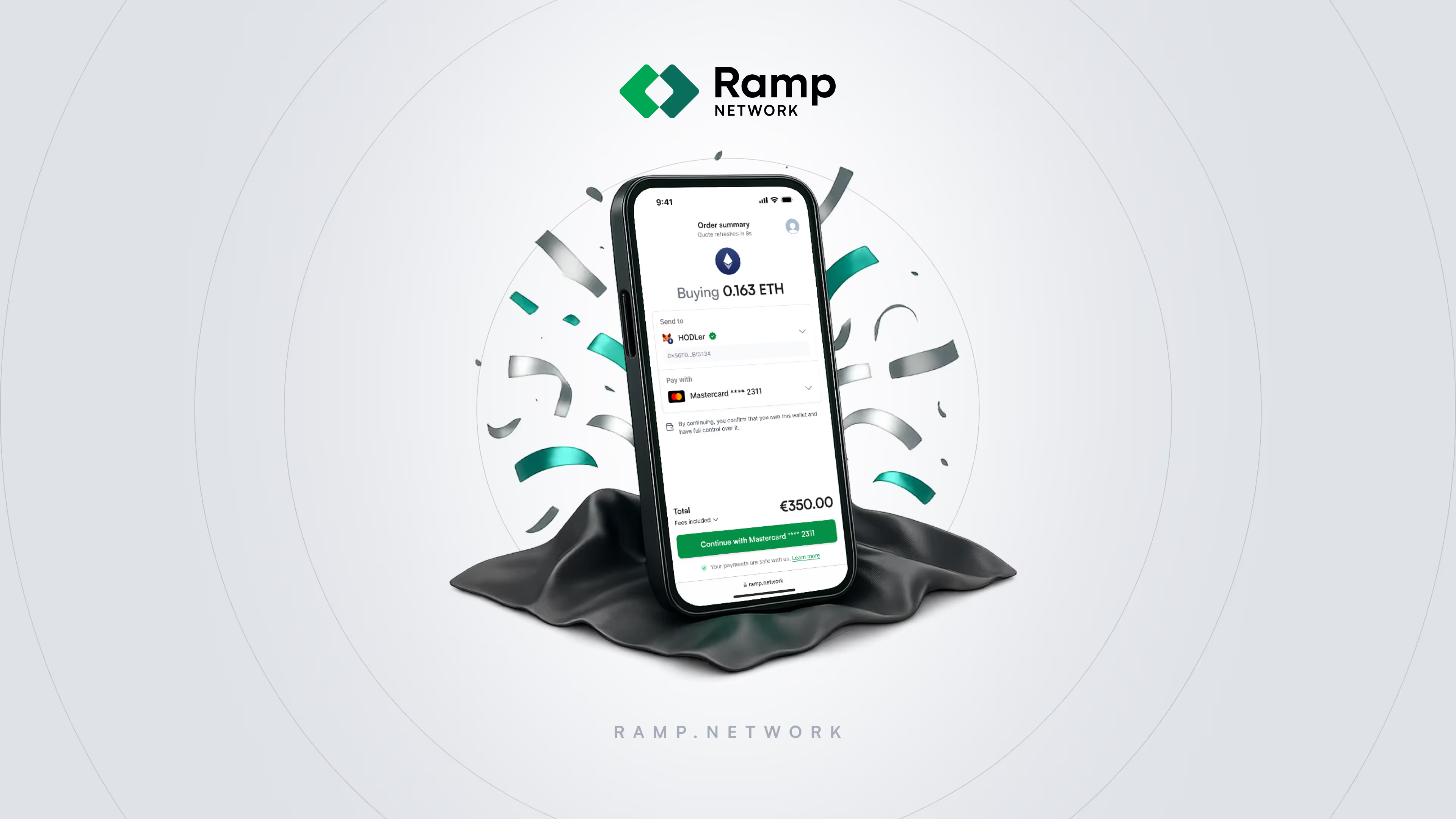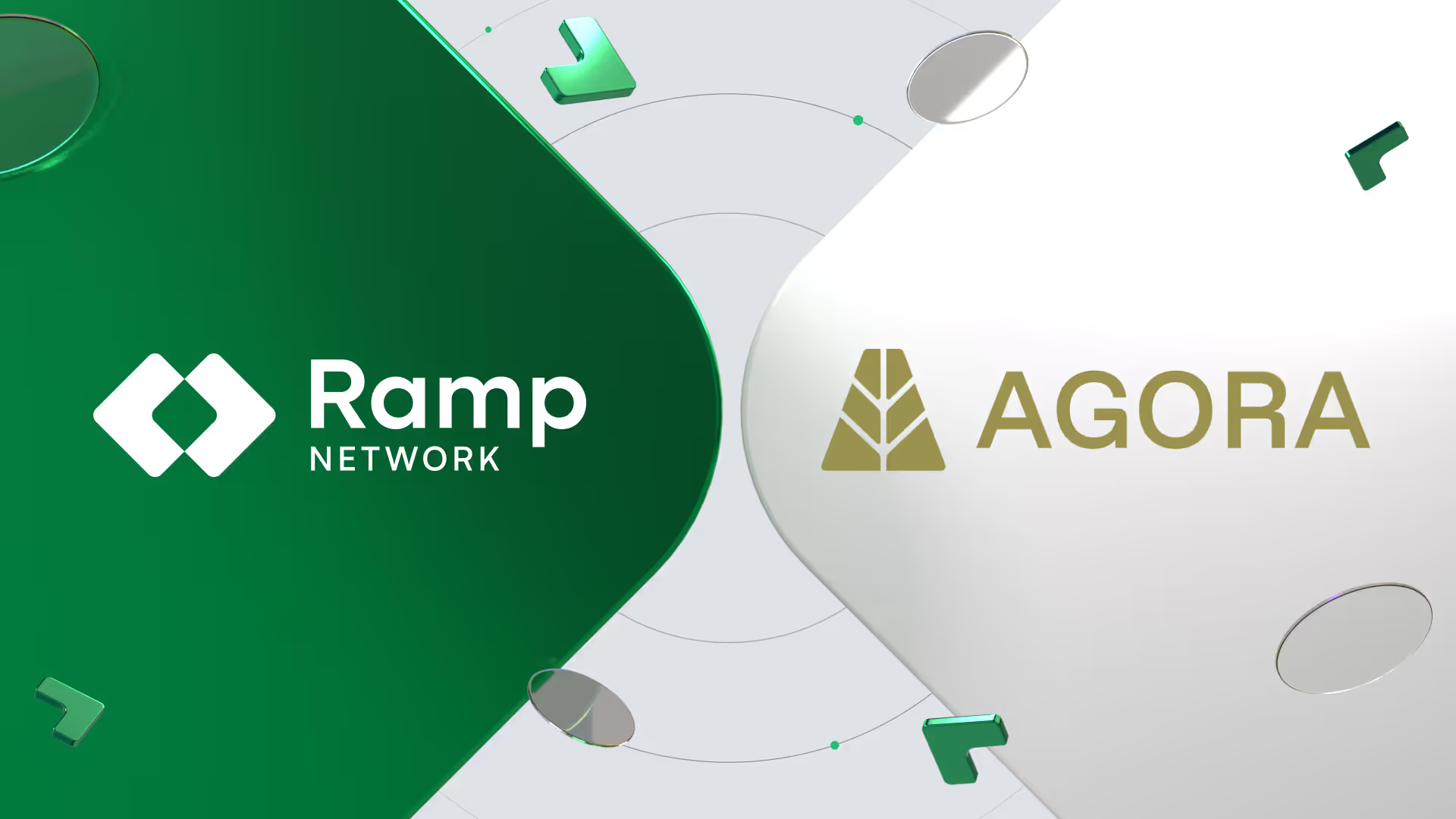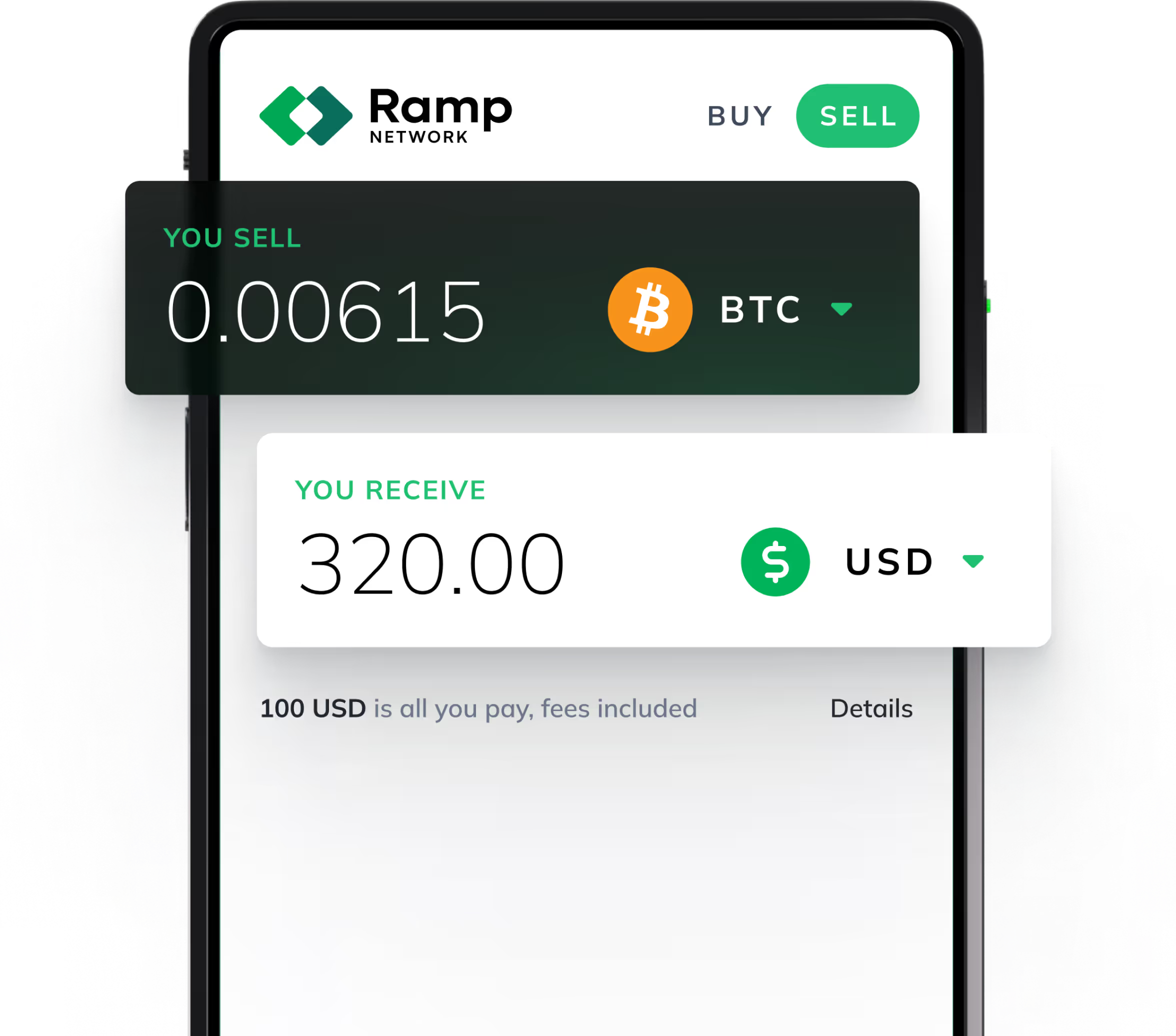.avif)

Why do so many people hesitate when buying crypto for the first time? At Ramp Network, we wanted to understand what builds — or breaks — trust in this space. So we asked users directly. The results are clear: for crypto to go mainstream, security can’t just be a backend feature — it has to be visible, felt, and proven from the very first transaction. Here’s what we learned.
🚨 Security concerns are the #1 barrier to crypto adoption
Our user research reveals a powerful insight: security is the dominant concern when it comes to engaging with crypto platforms. Words like “safety,” “privacy,” “protection,” and “security” are often used interchangeably by users – all signaling the same deep-seated need: confidence and trust in platforms that handle their money.
Users fear breaches, scams, phishing, fraud, and irreversible financial loss. They want reassurance that their assets are protected – not just with technology, but with accountability.
This is backed by compelling data from our surveys:
- 46.8% of respondents selected "Security concerns" as the top frustration when buying crypto – making it the single most cited barrier.
- 80% of respondents said that “assurance of security and protection against fraud” is what would make them feel comfortable making their very first crypto transaction.
Importantly, this concern is even more pronounced among beginner users, who tend to weigh security and fee transparency more heavily than interface usability. While 69.7% of intermediate/advanced users prioritize a user-friendly interface, beginners are more focused on fundamental trust factors – with 54.55% selecting security and 31.82% selecting fees as top priorities. This insight underscores a key trend: for crypto to truly go mainstream, platforms must first win over users’ trust – not just their clicks.
"The thing about crypto that's freaky is, I don't know what's safe. I don't know what platforms are safe… I just want to know my wallet isn’t going to get breached or my card data leaked."
🔐 Key factors that build trust
From the conversations, several clear trust indicators emerged:
- Fraud protection mechanisms – proactively communicated safety measures against “malfeasance of any kind.”
- Strong authentication methods – KYC and 2FA give users peace of mind.
- Visible security infrastructure – apps and platforms that clearly show warnings of breaches or login attempts.
- Reputational trust and compliance – platforms seen as regulated, licensed, or operating under recognizable legal frameworks (e.g., US, UK, EU) feel more credible.
- User vigilance is high – users are educating themselves and checking reviews, ratings, even contract activity and transaction volumes before trusting a platform.
- Quality products win – users are on the lookout for glitches or odd-looking interfaces, assuming professional services build well-designed and performant applications.
“I trust Robinhood not to leak my information… if there’s KYC, I feel safer. I’d be more worried if there was no verification at all.”
“I want to know on the first page of a crypto platform that it’s legit, secure, and regulated – not another FTX.”
📉 Crypto risk perception is blocking new users
The psychological hurdle is real – users are often hesitant to make their first crypto transaction due to fear of being scammed or making a mistake. Many adopt smart and security-conscious practices such as using hardware wallets, diversifying wallets, and choosing trusted, regulated platforms. These are widely recommended in the crypto space.
One of the most common behaviors we’ve observed is users making small first transactions as a way to test the safety of the platform. It’s a low-risk trial – a way to verify that the process works, that their funds are safe, and that nothing goes wrong. This “trust test” is a crucial first step in their crypto journey and often a direct reflection of how confident they feel in a platform’s security.
However, many of these protective measures – like wallet diversification or cold storage – require a fair level of tech-savviness and understanding of crypto jargon. For some users, investing time in that level of complexity simply isn’t worth the perceived risk. It’s hard to trust something you don’t fully understand – and even harder to invest in it.
“Security is more important than fees. I’m willing to pay slightly higher fees if I feel safer.”
“When using a new platform, I always always send a small amount first to see if it's actually legit.”
“I was looking online on how to buy Bitcoin and it said, you can go to Bitcoin ATMs. There was one 20 minutes up the road, in a corner shop. I went to the back and it was there surrounded by all the breads. I thought: ‘if I put £20 in it, I am never gonna get this back. Let me put in a little bit of money just to see if it works’. I remember I got home and I was waiting. I was waiting and waiting. And then boom. It suddenly showed up. Another time I transacted with £100.”
💬 Key insight – trust must be earned early
Especially among first-time users, the perception of safety is just as important as the actual experience. It’s not enough to be secure – platforms must communicate this clearly and proactively, from the very first touchpoint.
📊 Our internal data proves the point
Ramp Network’s internal data confirms what users told us: trust is built transaction by transaction. In fact, when looking at settled transactions over the past year, we found that 33% of users who made more than one transaction started with an amount under $100 — and then continued transacting with larger amounts as their trust in Ramp Network grew.
This pattern shows a clear behavior: users often start with small transactions to test a platform’s reliability and safety before committing larger amounts. Once they see the process works and their funds are secure, they return with greater confidence — and higher-value transactions. It’s trust in action, backed by data.
💎 Ramp Network’s value proposition: security, trust & transparency
At Ramp Network, we understand that trust isn’t given – it’s earned. That’s why we’ve built our platform with security at its core:
- We're FinCEN-registered in the US, FCA-registered in the UK, VASP registered with the Central Bank of Ireland, and SOC2 Type 2 compliant – meeting gold-standard benchmarks in compliance and data protection.
- Our KYC and fraud prevention protocols are designed to protect our users from end to end.
- We deliver not only a seamless experience, but one that’s rooted in trust and accountability – giving users the confidence to begin small and grow with us.
We don’t just want users to try crypto. We want them to make it a regular part of their personal finance and feel safe doing so — knowing Ramp Network is a name they can rely on.
As the crypto industry continues to evolve, platforms that prioritize transparency, security, and trust will win — not just the first transaction, but the long-term loyalty of the next wave of users.















.avif)


